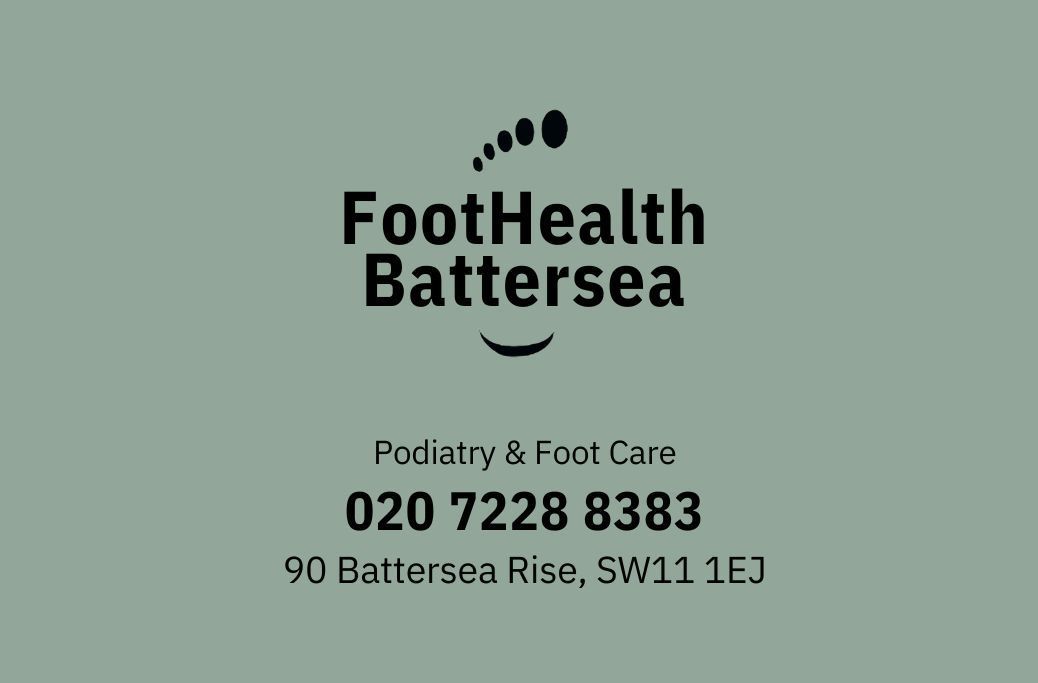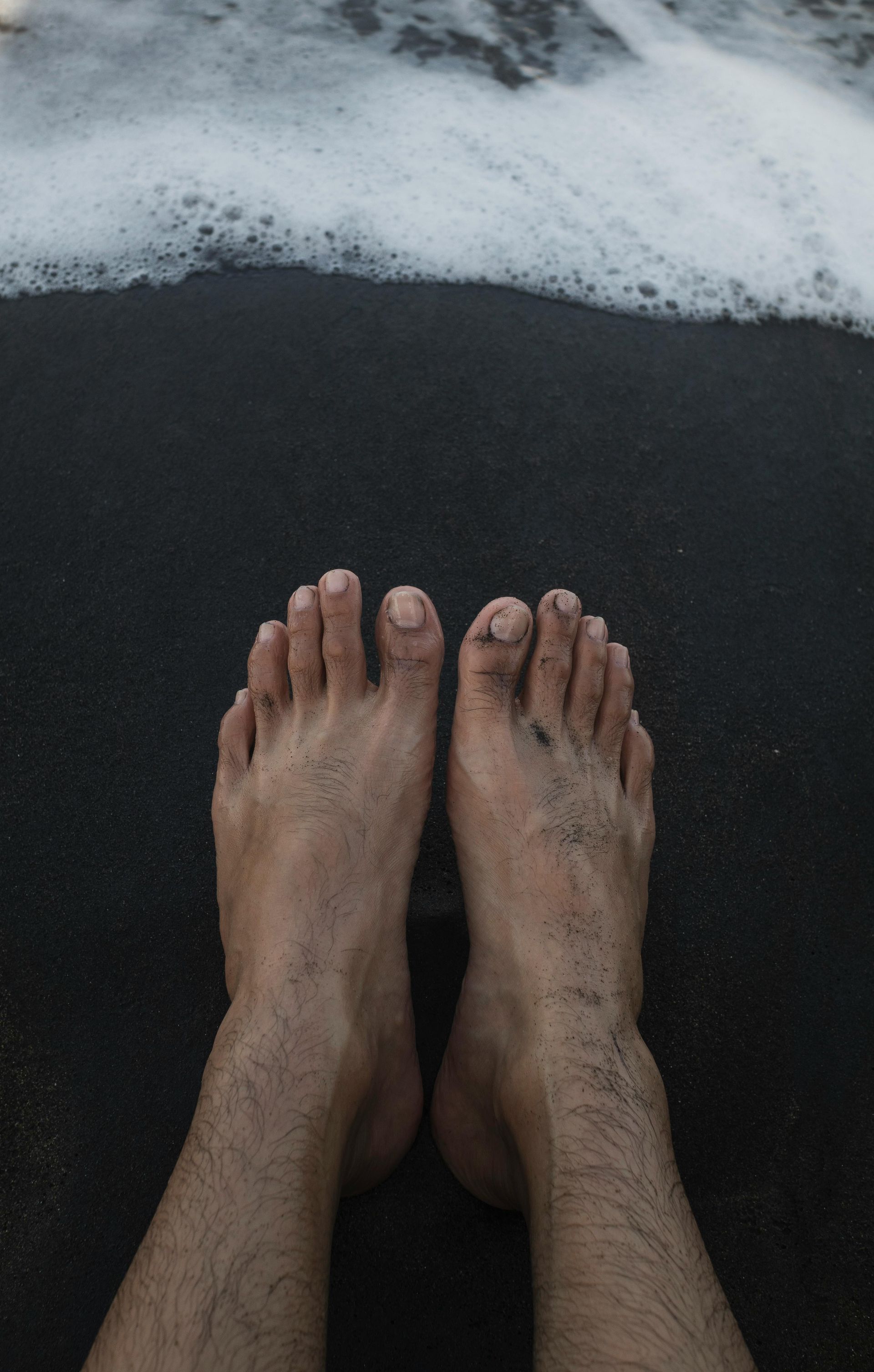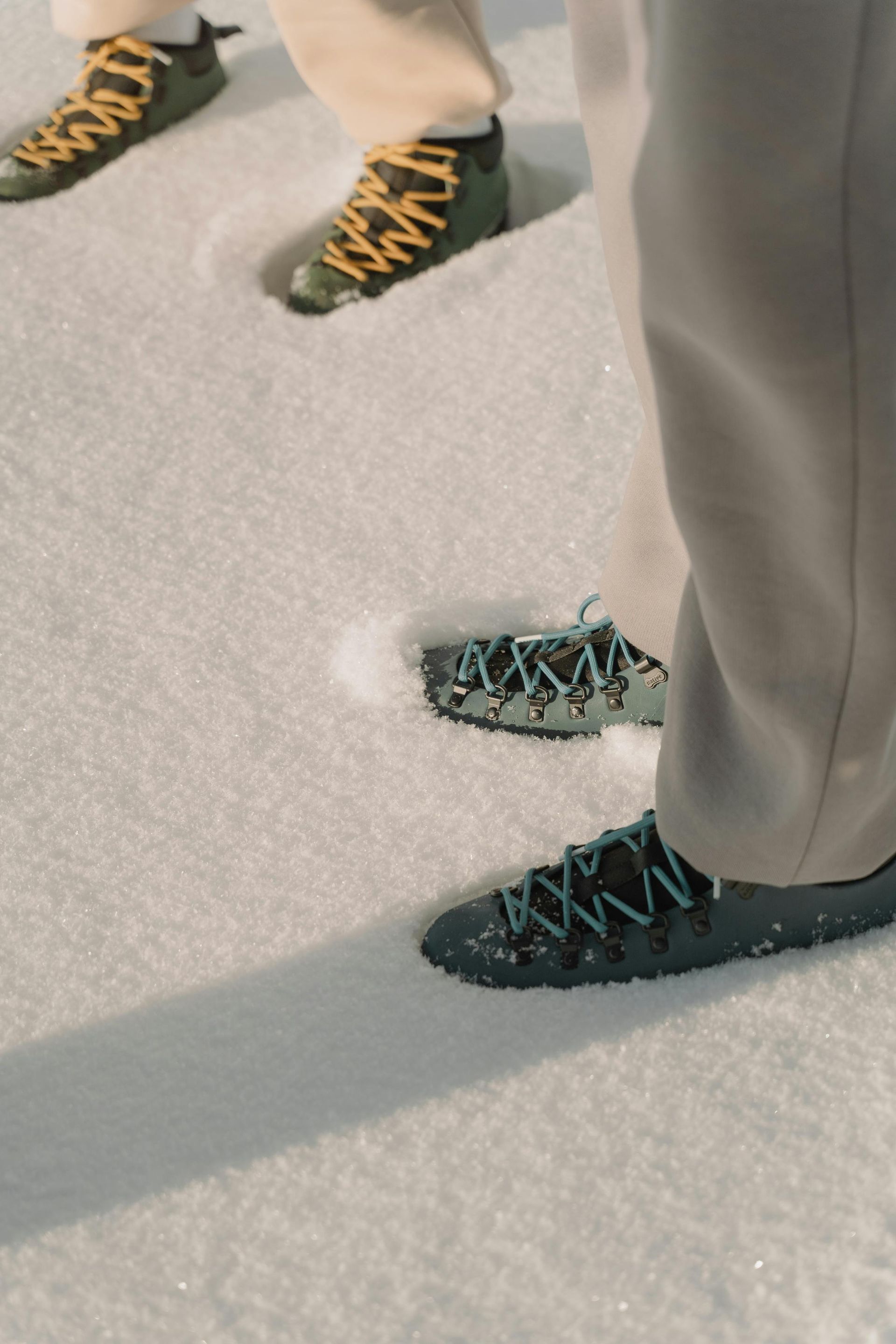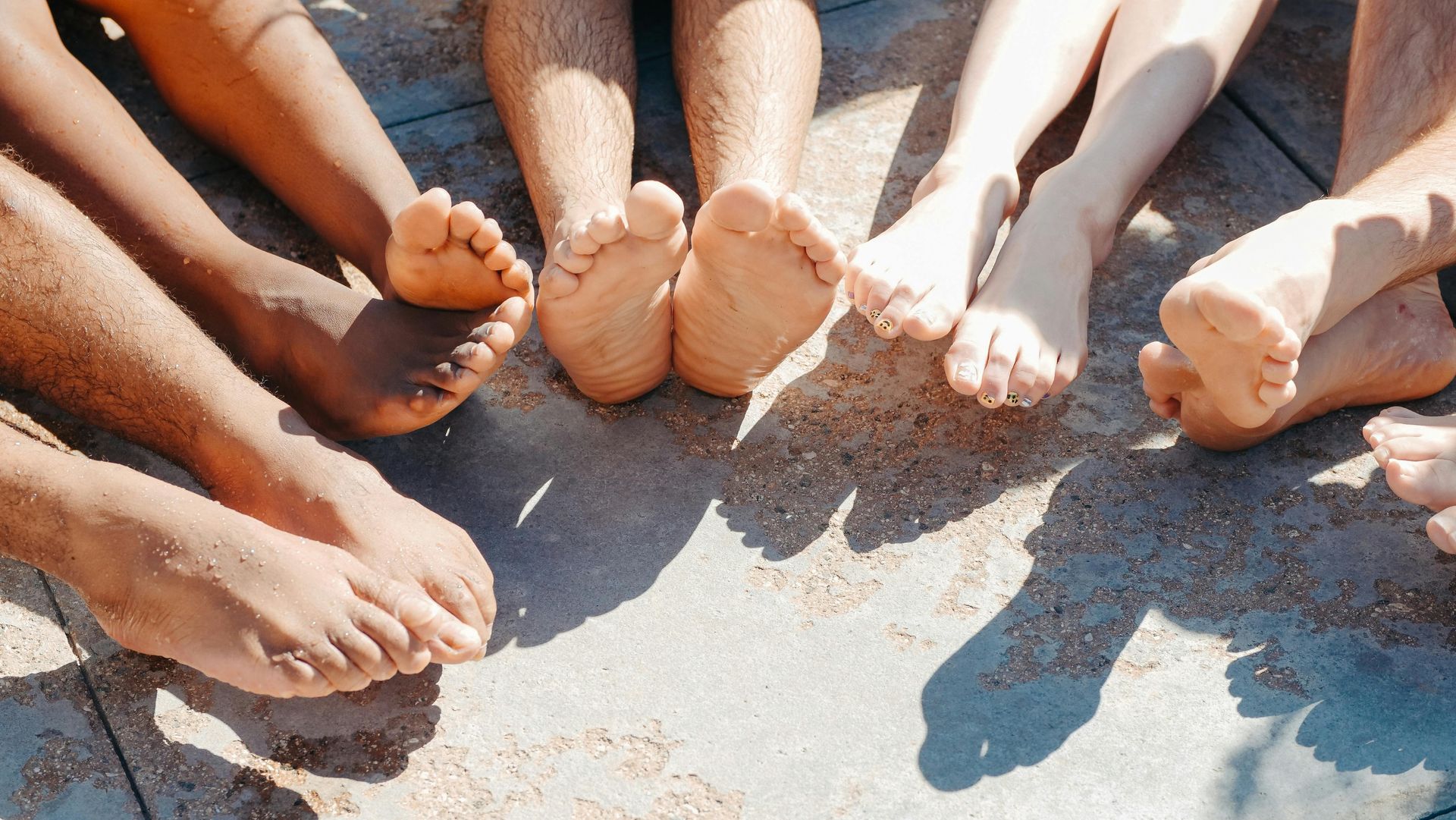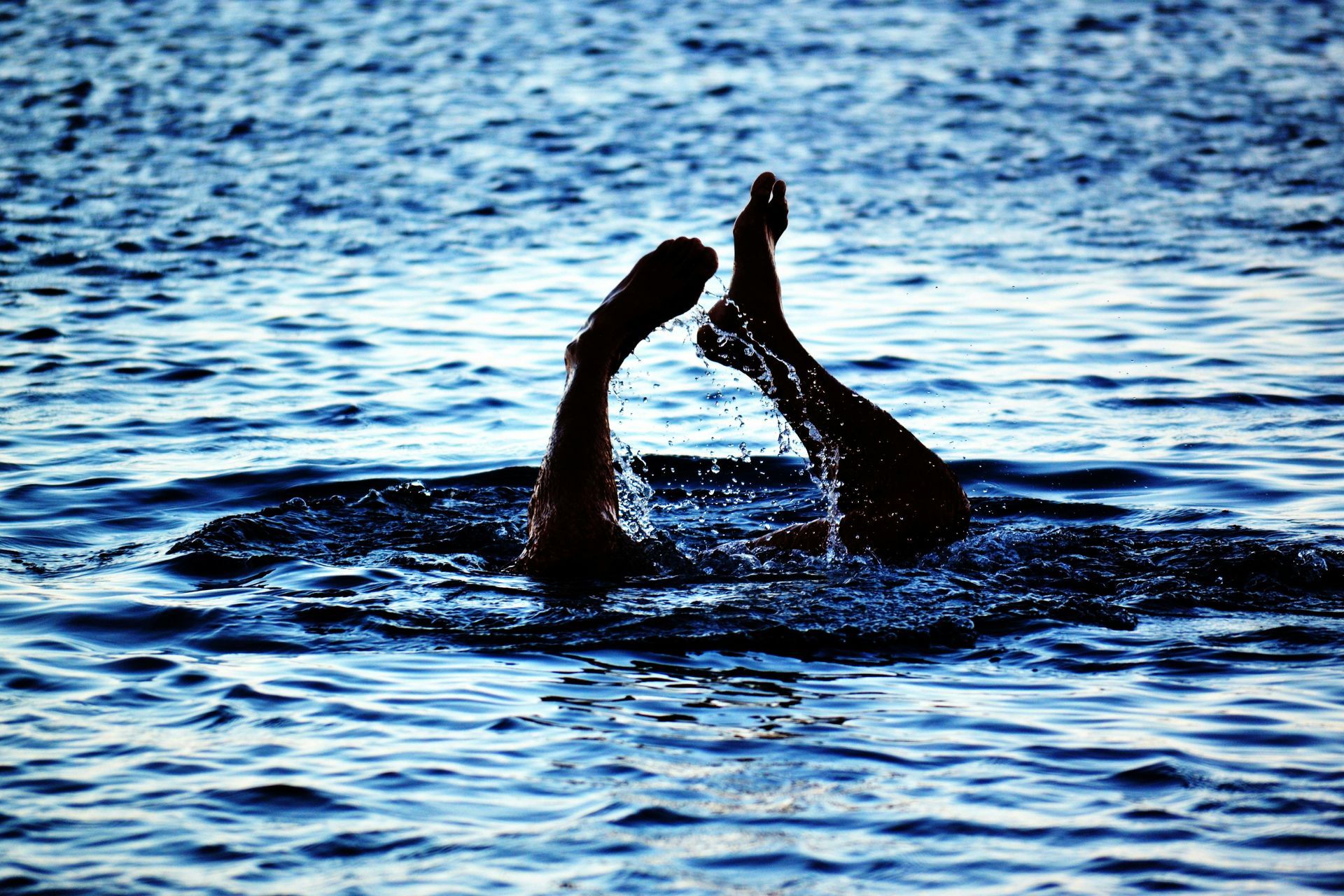How to Prevent and Treat Autumn Athlete’s Foot: Battersea Foot Health Experts Guide
How to Prevent and Treat Autumn Athlete’s Foot: Battersea Foot Health Experts Guide

Autumn in London brings cooler days, damp pavements, and a shift in footwear. While pumpkin spice and cosy layers are welcome, there’s a less welcome seasonal visitor—athlete’s foot. Surprisingly, autumn can be just as risky for fungal foot infections as summer.
At Foot Health Battersea, we want to help residents stay ahead of foot problems. In this comprehensive guide, we’ll cover what athlete’s foot is, why autumn increases your risk, prevention strategies, treatments, and when to see a podiatrist.
What is Athlete’s Foot?
Athlete’s foot (tinea pedis) is a contagious fungal infection that affects the skin on your feet, often starting between the toes or on the soles. The fungus thrives in warm, moist environments, making damp socks, closed shoes, and communal showers a perfect breeding ground.
Common Symptoms:
- Itching or burning between toes
- Red, scaly, or flaky skin
- Blisters or peeling in severe cases
- Foot odour due to bacterial growth alongside the fungus
Left untreated, athlete’s foot can spread to toenails (causing fungal nail infections) or even to other areas of the body.
Why Autumn in London Increases Risk
Most people associate athlete’s foot with summer, but autumn brings unique risk factors:
- Damp Weather – October in London is rainy, keeping socks and shoes wet longer.
- Closed Footwear – Boots and leather shoes trap warmth and moisture.
- Commuting & Public Spaces – Damp pavements, tube stations, gyms, and swimming pools increase exposure to fungal spores.
- Less Sunlight – UV light can naturally reduce fungal growth, so shorter days can make your feet more vulnerable.
This combination makes autumn a prime time for Battersea residents to focus on preventive foot care.
Step-by-Step Guide to Preventing Athlete’s Foot
Prevention is far easier than treatment. Here’s how to protect your feet this autumn:
1. Maintain Good Foot Hygiene
- Wash your feet
daily with warm water and mild soap.
- Dry thoroughly, especially
between the toes, where fungus loves to hide.
- Consider using an antifungal foot powder if you are prone to sweaty feet.
2. Choose the Right Footwear
- Breathable shoes like leather or mesh allow airflow.
- Avoid shoes made entirely of plastic or rubber for long periods.
- Rotate shoes daily to allow them to air out.
3. Sock Smarts
- Wear
moisture-wicking socks made of cotton or technical fabrics.
- Change socks at least
once a day, more often if your feet get sweaty.
- Avoid walking barefoot in damp environments.
4. Protect Public Spaces
- Always wear
flip-flops or sandals in gyms, swimming pools, or communal showers.
- Avoid sharing towels, socks, or shoes—fungus spreads easily through contact.
5. Foot Care Habits
- Trim toenails straight across to prevent ingrown nails.
- Moisturise your feet regularly—but
not between the toes.
- Inspect feet frequently for signs of redness, scaling, or cracks.
Treatment Options for Athlete’s Foot
Even with prevention, infections can occur. Early treatment is crucial to prevent spread and complications.
Over-the-Counter Remedies
- Antifungal creams, sprays, and powders are effective for mild cases.
- Follow instructions carefully, applying treatment even after symptoms improve to prevent recurrence.
Prescription Treatments
- Severe or persistent infections may require
stronger topical or oral antifungal medications.
- A podiatrist can recommend the right option based on severity and health history.
Home Care Tips
- Keep feet
clean, dry, and ventilated.
- Wash socks and towels in
hot water to kill fungal spores.
- Replace old shoes that may harbour fungus.
When to See a Battersea Podiatrist
Seek professional care if you experience:
- Persistent itching, redness, or scaling
- Spread to toenails
- Pain, swelling, or cracked skin
- Underlying health conditions like diabetes or poor circulation
Professional podiatrists in Battersea can:
- Diagnose and treat fungal infections effectively
- Provide advice on footwear, orthotics, and hygiene
- Offer preventative care for recurring issues
Additional Tips for Healthy Autumn Feet
Beyond fungus prevention, autumn is a good time to check your overall foot health:
- Massage and stretch feet to improve circulation and relieve tension from boots or walking.
- Monitor for other infections or injuries, like blisters or calluses from heavier footwear.
- Consider
regular podiatry check-ups, especially for those with diabetes, arthritis, or previous foot injuries.
Key Takeaways
Autumn in Battersea doesn’t have to mean itchy, uncomfortable feet. By maintaining hygiene, choosing the right footwear, and seeking early treatment, you can prevent athlete’s foot and enjoy the season comfortably.
Your feet carry you everywhere—give them the care they deserve. Book an appointment with Foot Health Battersea today to stay fungus-free and healthy all season long.
Read More from our Blog
FootHealth Battersea Blog Spot
Can FootHealth Battersea assist you?
